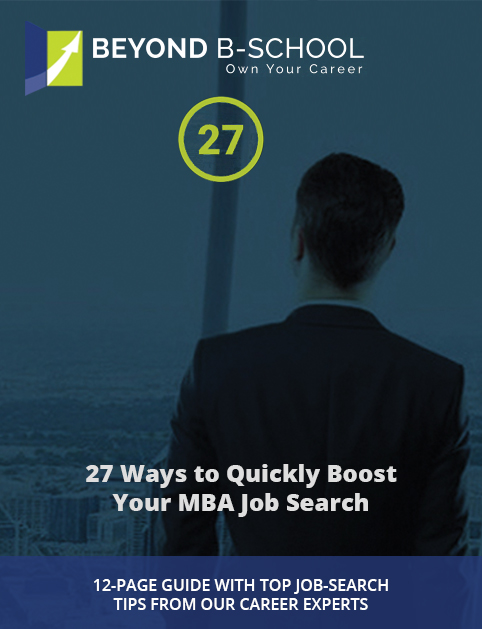RESOURCES FOR CAREER COACHES
WHY YOU? Preparing Your Story to Answer the Inevitable Make or Break Question
By Taura Prosek
What You Will Learn: 1. You have impressed a prospective employer on paper. Or, perhaps you have networked your way to a referral to be considered for an open position. Or, you secured an on-campus interview with an employer who is visiting your school. However you secured the interview, you have an opportunity to sell yourself. 2. You now must prepare for the interview to rehearse how to communicate what makes you the best candidate for the position. 3. All employers will attempt to learn about you beyond your resume by asking this key question in a number of different ways. But the essence of what am employer wants to know is “Why should I hire you?” 4. This short presentation gives you a framework to prepare for any interview. Key Points Part I: Prepare to Answer questions in a personal way 1) Why you? Why should I hire you? Why are you qualified? What makes you the top candidate? This question always surfaces in one form or another and if it doesn’t, be sure to close the interview with it. This is your opportunity to differentiate yourself by strongly communicating your brand as it relates to the value you bring to this employer. Prepare for this question by articulating 2 to 3 key points and validating it with evidence. “I am the best candidate for this role because of my experience in successfully operating in situations of ambiguity based on my time in ____ role, which was a newly created position at ___, Inc. back in 2012 where I was able to…” 2) Tell me about yourself. Often times, interviewers lead with this question. You may follow-up with a question asking them if they mean personal or professional, etc. I recommend jumping right into your answer leading them to why you are interested and why you are qualified. “I first found a passion for marketing back in 2009 when I experienced….” The interviewer is looking to see if you are the right fit for this job, company, culture, their team, etc. Where you grew up or held your first job as a teenager might be of interest to them, but when they ask you this question, “tell me about yourself,” you want to remember that this is an interview and you are selling yourself. Determine what is relevant for this interviewer and start your story there. If they want to probe further back, they will. Part II: Prepare specific value statements Take an inventory of your qualities and ACCOMPLISHMENTS that make you valuable to the company. Use the following three categories of qualities Technical competencies: These may be described as your areas of expertise or functional skills. For example, a marketing role might seek technical competencies around market research, advertising, social media, SEO, branding, channel, integrated marketing, or data analytics. Identify the specific functional skills they are seeking. Competencies: These are personal effectiveness and leadership skills a hiring manager is looking for which may include things like conflict management, negotiation, change management, project management, presentation, communication, program management, people management, global, etc. They can be easily pulled out of a job description by reviewing the responsibilities outlined and other preferred qualifications. Values or Attributes: This can be researched on websites but is commonly communicated in the job description. Examples might include team player, innovative, critical thinker, strategic mind-set, analytical, initiative.Don’t worry too much if they are behaviors, competencies, values, attributes, etc. Just list them for the role and then the work begins. Part 3: Interview Preparation Framework I often tell my MBA student-clients that if they have 10 to 12 stories prepared in addition to the important questions presented to you earlier, that they will be in good shape for any question that comes at them. An interview preparation framework can help you prepare your answers to best market yourself. This framework allows you to identify:
- State what you did;
- Explain why you did it;
- Describe how you did it;
- Define the results compared to the goal; and
- Identify the longer-term impact of your actions.
| What | Why | How | Result vs Goal | Impact | |
| Technical Competency: 1. 2. 3. 4. | |||||
| Competency: 1. 2. 3. 4. 5. | |||||
| Value: 1. Self-starter 2. 3. | Completed Ironman Arizona in Nov 2014 | Missed competitive sports; Commitment to health & wellness | Researched for 2 yrs, Saved $10K; Trained for 12 mths; Overcame injuries | Completed in 12.5 hours (30 minutes better than goal); | Inspired others to compete; Raised $8K for charity; Lifelong commitment to healthy lifestyle |
- What is an accomplishment you’ve achieved that you are particularly proud of?
- When is a time you worked on a team that wasn’t functioning properly and how did you manage through it?
- Tell me about a time when you had conflicting priorities and how you managed expectations.
- We are looking for someone that has experience in [insert functional skill here]. Can you describe to me a time when you demonstrated this ability?
- What is a goal you’ve sent for yourself that you’ve achieved and how did you about it? Didn’t achieve?
- What is your greatest strength? Biggest development area?
- Describe a time when a project you were working on got off track, how did you course correct?


